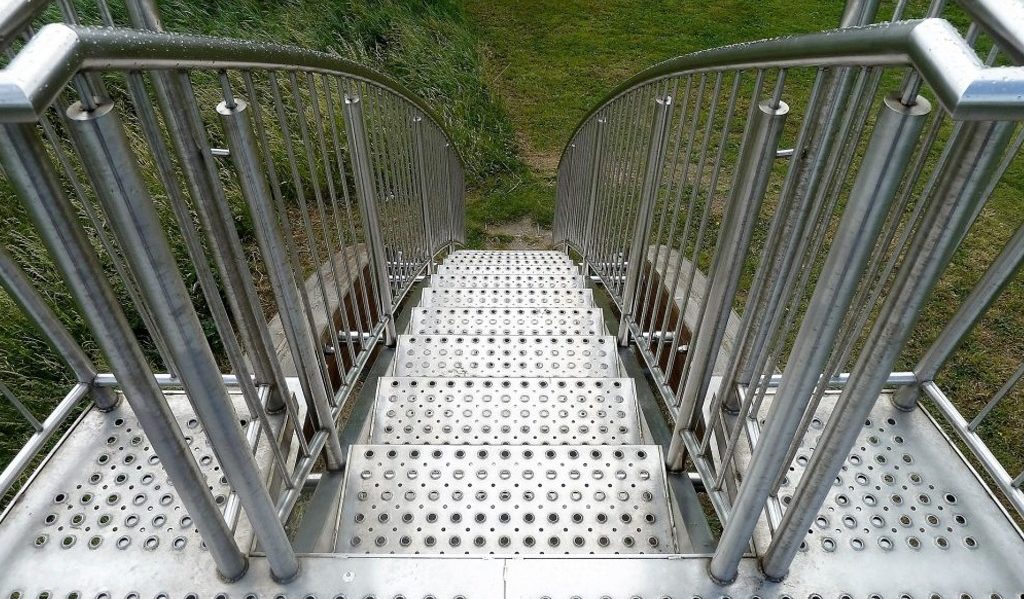Corrosion-resistant alloys are crucial in many facets of life, from industry and commercial purposes to simply washing the dishes. There are many different metals that are resistant to corrosion and rust, and combinations of these are often the best solution to fend off oxidation.

Rust is a form of corrosion that effects alloys containing iron, however, many metals have their own forms of corrosion. Often the most resistant metals are combinations of many resistant substances.
What Is Rust?
Rust is a chemical reaction that combines water and oxygen to form iron oxide, which is the flaky orange-brown substance that builds up on the surface of an iron containing compound. Water molecules can seep into small gaps within metal, quickly delivering oxygen molecules into the iron and speeding up the oxidation process. Exposure to salt, sulphur dioxide and carbon dioxide can further accelerate this process. As rust compromises the strength of a metal, it is important to eliminate any possibilities of rust during the construction or design phase of a project.
What Is Corrosion?
Despite common belief, corrosion and rust are not the same. Rust is a type of corrosion exclusive to iron and iron-containing alloys, while corrosion refers to any reaction involving oxidation or other chemicals. So while a metal may not rust, it can still be susceptible to corrosion.
Metals that don’t rust
Gold
Gold is a pure substance that is very resistant to chemical reactions. As it is pure and contains no iron, it cannot rust, and it does not react with oxygen. Despite this, certain chemicals, such as sulphur, can tarnish the surface of gold, which appears as murkiness of the reflective surface.
Platinum
Platinum is a metal that doesn’t rust, corrode or tarnish. It is dense, strong and malleable at the same time and therefore it is very sought after for engineering purposes.
Silver
Silver is resistant to corrosion, however, it does tarnish, forming a surface of silver sulphide. Out of all the metals, silver is the best conductor of electricity, and due to its malleability, it is very sought after in electronic industries.
Aluminium
Aluminium does not rust, but it is prone to oxidation. Interestingly, aluminium oxide is better at resisting corrosion than raw aluminium. For this reason, it protects the layer of metal underneath from further damage. This differs greatly to iron oxide, which simply flakes away leaving layer underneath open to corrosion.
Copper, Brass, Bronze
Copper, brass and bronze (which both contain copper) can oxidise from long exposures to air and humidity, forming a blue or green layer. The layer is a carbonate/sulphate mix called a patina.
Galvanised Steel
Galvanised steel is formed with one or more zinc coatings applied to a carbon steel base. The layer of zinc oxidises, forming a zinc oxide layer which prevents iron oxide from forming underneath it. Despite this, if the zinc layer is damaged or worn away, the carbon steel underneath will rust. ‘White rust’ can also form on galvanised steel in certain situations involving water, air and condensation, the bi-product usually being zinc hydroxide. White rust is usually only a superficial blemish that does not cause structural damage.
Stainless Steel
Stainless steel is resistant to rust, however, different grades of steel are more resistant than others, depending on composition. Steels containing nickel and chromium are very corrosion-resistant, as chromium oxidises before iron, which results in a chromium oxide layer that prevents any rust from forming. Other forms of steel, such as ferritic or martensitic steels, contain less chromium and therefore are more susceptible to rust.
If you are considering steel for any construction purposes and would like a professional opinion, we can help.
Our team expert structural steel fabricators have the experience and knowledge to answer any of your questions and will ensure that you find the best solution to suit your needs. To contact us today, simply call, fax, email for a steel quote or drop by our Brookvale location.